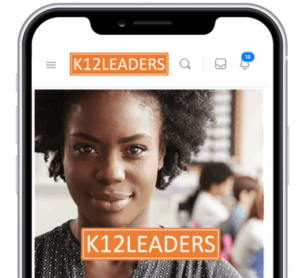2025 Bold Predictions in Ed Tech
In 2013, I made a resolution to come up with a range of various “bold” predictions for the world of education and technology. Twelve years later, I continue to try to up the ante while also staying grounded in some level of realism. Think Black Mirror but for education…or is that too dark?
Some of my predictions from back then seem almost laughable and yet, strangely plausible. I predicted someone would name their child “ #3?” as Twitter was all the rage back then (RIP). I also predicted that memes would become the hieroglyphics of this generation, and I think I pretty much nailed that. When it came to school devices, I made the following prediction in 2013 prior to the massive wave of Chromebooks taking over schools:

It’s fun to reflect and cherry pick the times I got things right. It would take several thousand words to go over all the ones I got wrong, but if you ever want to go back and take a look, here’s a list. Now it is time to face forward and peer into the not-so-distant future. Last year, AI played a major role in most of my predictions and it will continue to play a role in some this year as you will see below.
So without further ado, here’s my BOLD predictions for 2025:
There will be a rapid increase of “AI Schools”
The rise in AI and the ever-shifting landscape of public education funding means that schools like the Alpha School will continue to develop and grow exponentially this year. Fueled by the decrease in education majors and the increase of teacher burnout and I could see a future world where we send our kids to these “AI centers”. At these centers they use computers to learn academics and lean on the adults to learn about life. This sounds all well and good, but my biggest concern isn’t around the efficacy of the use of AI in these schools. My biggest worry is about the equitable access that students around the country will have to it. Stay tuned…
You’ll soon be able to buy stock in schools
The stock market (invented in 1792) has been around almost as long as public schools (invented in 1635) in this country. With funding of schools becoming more of a state issue in the future, we’ll have to start thinking of innovative ways to get dollars into learning institutions. Enter the School Stock Exchange – a place where parents and non-parents alike can invest some monies into the “value” of the school. Should the school do well and show improvements, the stock goes up. Should students start to drop-out or not graduate, the stock plummets. There would have to be some other metrics in place as well as insider trading laws, but imagine getting hired as a teacher and being offered stock options for where you work? It happens almost everywhere in the business world, why not education?
K12 Crypto launches
While the stock market has been around for over 3 centuries, cryptocurrency is still very much a new player on the scene. Companies like Knowlej incentivize students with a “learn to earn” model that might be the ticket to increase attendance and student engagement. Creating cryptocurrencies can’t be that hard can it? Time to put pressure on the founders of K12Leaders to make this happen in education.
Uber-like education services become a thing
Commerce has rapidly shifted from the big box stores of yesteryear (RIP Toys R’ Us) to a more “on-demand” model of ordering something once you think of it. I predict learning will evolve into much the same way. Using an app, students (or parents) can order up a few servings of math with a side of language arts for their struggling student. That request goes into a queue which is sent around te area and online looking for a quick tutor to provide assistance. Most of these tutors will be virtual and perhaps even AI-driven, but for an up-charge, they can even come to your house, park, or neighborhood coffee shop to help with that struggling concept or assignment. A rating system will sort out who are the best of the best and pricing surges will ensue for those most sought after, especially during finals.
Robots won’t replace teachers, but maybe custodians?
As I’ve stated a couple of times already, education is in dire straits when it comes to funding. Some schools like the AI school mentioned above may give school leaders the idea to replace teachers with robots. This was infamously tried back in 2008 Japan and as I outlined in my book Learning Evolution the results were disastrous. Schools looking to cut corners may go the way of stores like Sam’s Club Brain Inventory Scan robots to deploy as a replacement for custodians. The robots will not only sweep and buffer the floors, they’ll also come with vape detection and defensive battle tactics in the event of a school lock-down.

The new Secretary of Education will be on the UndisruptED podcast
Adam and I have had some pretty big guests on the show in the past, but this year, for our 100th episode, we set our target (and steel chair) on newly appointed secretary of education Linda McMahon. I’ve already got a request into her office to have her on the show. It would be beneficial to those in the education space to hear her views on the future as Adam and I try and limit the amount of wrestling references during the show. Who’s ready to learn from the top rope? Can you smelllllllll…what the cafeteria is cooking?
Transformative furniture will re-imagine the traditional classroom space
We’ve had mobile chairs, Hokki stools, and standing desks for over a decade in education. What’s next in the education furniture space? These TRANSFORM tables from MIT (video below) can readjust the learning surface on the fly into whatever you might imagine. Think of a future world where you hit a button and your entire classroom comes with built-in stadium seating or maybe a giant circle configuration for Socratic seminars. The only limits are your imagination (and funding, as I’ve mentioned now three or four times in this blog).
The Meta Smart Ray-Bans go next level
During my travels this past year, I came across several colleagues repping these new Meta smart Ray-Bans. Unlike the Google Glasses experiment/disaster of a few years ago, these have a manageable price point (around $300) and some decent functionality for texting and searching via voice commands. One of the major flaws that would inhibit it in the education space besides price (did I mention education is under-funded?) is the fact that it would be unmanageable to have an entire class of students talking out loud to their smart glasses. One recent iteration from the 2025 Consumer Electronics Show (CES) are these Halliday smart glasses. These have a mini-display and a way to control the menu through a connected smart ring. I can hear the excuses already…”I can’t learn today because I forgot my ring!”
Photo of Rob Dickson (right) wearing the new Meta smart Glasses
I will publish a response book to “The Anxious Generation”
Last fall, Forbes published this article stating that 60% of employers have fired Generation Z employees within their first year. With GenZ really struggling in the workforce, we in the Hooker household are wondering how our own kids will fare and where they will struggle. Psychologist Jon Haidt posited his views on this in his book The Anxious Generation where he goes into a myriad of details as to why kids are struggling so much in this day and age. His chapter on education and parenting lack ideas for how parents and teachers can fix this other than “screens are bad, play is good.” I’m cheating a bit on this prediction as I’ve already started working on an outline, but expect some handy “Antidotes for the Anxious” coming your way in 2025.
Some kid will get rich using AI to invest
I really feel like finances are a major theme to this year’s list so why not finish my predictions with…something about money? AI can do a lot of things well and others not so well. I recently posted my list of recent ChatGPT prompts on BlueSky as sort of a personality test. I got some interesting responses from my followers including why I would write a song about Tom Murray, but one in particular was the “Couch to 10K” prompt I used.
My daughter tricked me into signing up for a 10K race in April which prompted me to prompt ChatGPT for an assist on “creating a plan for an overweight, middle-aged man to run a 10k in 16 weeks.” That brings me to my final prediction. I predict a student will use AI to either help them invest or create some sort of investment strategy that turns them into a millionaire before they graduate. Maybe they’ll invest in schools like prediction #3?2 or buy K12 Crypto like prediction #3?? While neither of those outcomes are likely, I do think AI will help some student develop an effective investing strategy that will make them rich and famous before the ball drops on 2025.
So there you have it. Which of these predictions will come true this year? What predictions do you have for the upcoming year? No matter what happens, here’s hoping we all get rich with learning in 2025!







